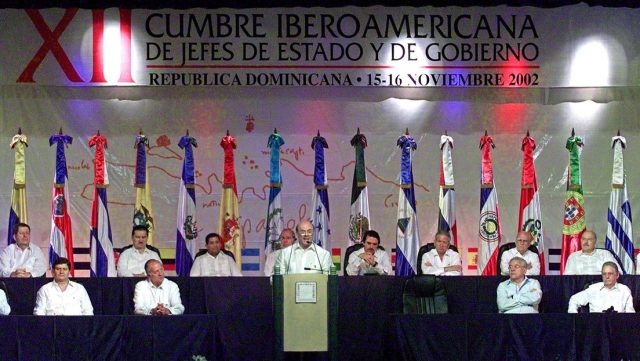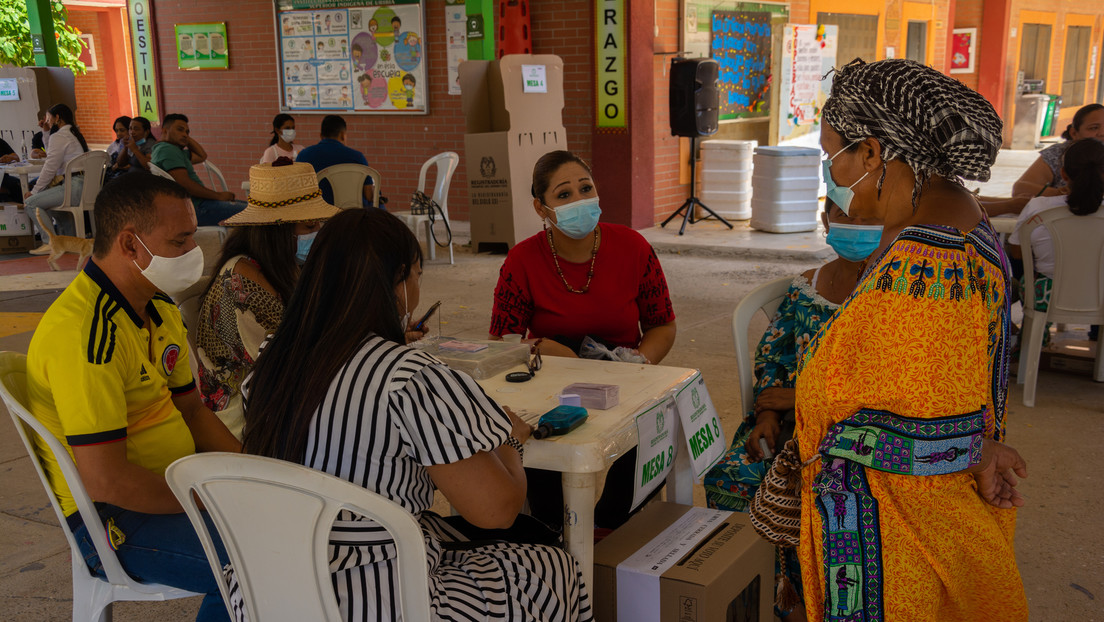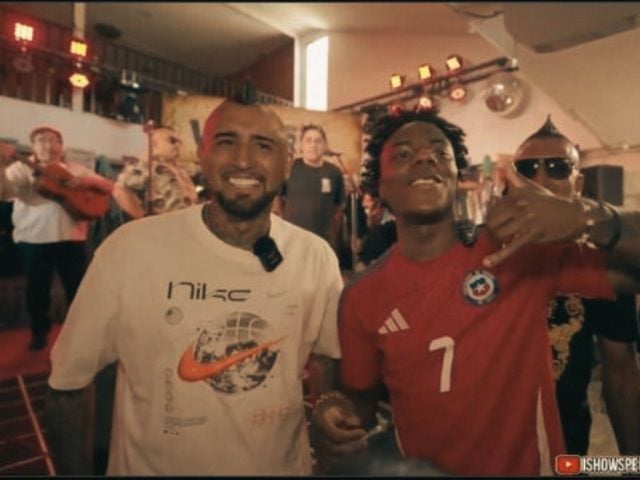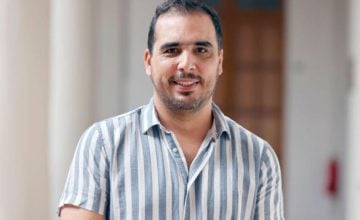The Summit of the Americas, which will take place from June 6 to 10 in Los Angeles, comes preceded by the controversy that the US Government has unleashed for not inviting countries like Cuba, Nicaragua and Venezuela, which has already caused several Latin American presidents to threaten not to attend the continental meeting.
First it was the Mexican Andrés Manuel López Obrador, who directly asked Joe Biden that no country be excluded and who has also already warned that, if that policy is maintained, he would not travel to the meeting.
In this same path, the Bolivian Luis Arce, the Guatemalan Alejandro Giammattei, the Honduran Xiomara Castro and the Argentine Alberto Fernández joined later. Chilean Foreign Minister Antonia Urrejola, for her part, stressed that exclusion has never given good results.
Because of this, the US faces unprecedented pressure from Latin American countries that could boycott the meeting, explains a report by journalists Cecilia González and Nazareth Balbás for RT.
The campaign was seasoned with an ironic phrase by López Obrador. “In America we can no longer maintain the policy of two centuries ago. How is it that we convene a Summit of the Americas but we don’t invite everyone? So from where are those who are not invited?, from what continent?, from what galaxy?, from what satellite?”, he asked himself to criticize the Biden Administration.
But it is not the first time that controversies surround presidential summits, nor that the heads of State launch phrases that become popular and remain in history for representing verbal confrontations that break the norms of diplomacy and that, sometimes, even become cultural phenomena.
Crosses for the dead
The X Ibero-American Summit that took place in Panama in November 2000 is remembered for the strong and public fight between the presidents of Cuba, Fidel Castro, and El Salvador, Francisco Flores.
At that time, the anti-Castro, former CIA agent and terrorist Luis Posada Carriles had been arrested precisely in Panama, since he was accused of planning an attack against the Cuban president.
During the Summit, Castro criticized Flores for proposing to condemn against the Spanish terrorist organization ETA, which he considered to be a double standard, since Posada Carriles had been in El Salvador with complete freedom, despite having acknowledged responsibility for attacks in the island and his intention to kill Castro.
«We condemn these crimes (by ETA) like those that are committed anywhere, like those that the Israelis have committed against the Palestinians, but what surprised me the most is that this proposal came precisely from El Salvador», accused Castro, which provoked an angry response from Flores.
«Mr. Castro, it is absolutely intolerable that you, involved in the death of so many Salvadorans, that you, who trained many people to kill Salvadorans, accuse me of being involved in the case of Luis Posada Carriles», he said before the astonished look from the rest of the leaders. The exchange completely froze the bilateral relationship.
The awkward call
In March 2002, Mexican President Vicente Fox hosted the International Conference on Financing for Development, which was held in Monterrey at the invitation of the United Nations and in which dozens of heads of State from around the world participated.
Cuban Fidel Castro confirmed his participation at the last minute, but Fox, who wanted to look good with President George W. Bush, considered that it would be better if he did not go. And so, through a phone call, he tried to convince him not to travel to Monterrey.
First, Fox told Castro that he was concerned about his safety, but when the Cuban leader clarified that he had no concern in that regard and that he was going with a constructive, cooperative attitude, the Mexican tried to organize his agenda and asked him to be present only on the day he would give his speech.
Then, Fox offered to seat him next to him at the lunch of honor that he would offer to the leaders, but on the condition that he leave the country immediately afterward. «You eat and you go», he told Castro, with the intention that his presence would bother Bush as little as possible.
What Fox did not know was that Castro was recording the call and that he would release it two months later to end the multiple speculations that had surrounded his abrupt departure from the Summit.
The Mexican, as expected, got angry and never recognized the mistake he made in handling the relationship with Cuba.
A summit to defeat «evil»
The late former president of Venezuela, Hugo Chávez, was a born polemicist who spared no provocations. Many of his speeches are remembered for his references to Bush, whom he used to shower with adjectives.
«Yesterday the devil came here, yesterday the devil was here, in this very place. This table where I have had to speak still smells of sulfur. Yesterday, ladies, gentlemen, from this same rostrum, the president of the United States, whom I call ‘The Devil’, came here speaking as the owner of the world», he said during the United Nations General Assembly which took place in New York in September 2006.
Less than a year earlier, in November 2005, they had also had a direct confrontation. The setting was precisely a Summit of the Americas that took place in the city of Mar del Plata, and in which Chávez, the host Néstor Kirchner and the Brazilian Luiz Inácio Lula da Silva agreed to ‘tire out’ Bush with their speeches.
The central objective was to tear down the Free Trade Agreement of the Americas (FTAA) that the US had promoted for years, and that Bush hoped would be signed at that meeting.
But it didn’t happen. In an unprecedented way, given the historical dependence (and often obedience) of Latin America to the United States, the three largest countries in South America prevented the completion of a trade pact that Washington already took for granted thanks, in part, to the support of Vicente Fox, who was allied with Bush until the last moment to try to counteract the strategy of the progressive presidents.
“FTAA, FTAA… al carajo (to hell with it)”, was the phrase that Chávez launched in a packed stadium in which he celebrated the success of the alliance of Argentina, Brazil and Venezuela, and with which he considered the agreement buried while Bush and Fox left furious ( and defeated) of Mar del Plata.
Silences and monarchies at the summit
In 2007, Chávez returned to star in one of those ‘unforgettable moments’ of the presidential meetings.
In November of that year, the Ibero-American Summit was held in Santiago de Chile in which the Venezuelan reiterated his criticism of then-ex-president José María Aznar, whom he accused of being involved in the coup that the Caribbean country had suffered in 2002.
«A snake is more human than a fascist», Chavez said one of the many times he interrupted the speech of Spaniard José Luis Rodríguez Zapatero. Sitting next to him, King Juan Carlos of Spain, exploded.
«Why don’t you shut up?», he yelled at the Venezuelan president, pointing first with his finger and then with the palm of his hand. More than a question, it was an order. The phrase, criticized for its imperialist tone, went around the world, and became a symbol of popular culture.
A controversy ‘at the gates’
A few days before the next appointment in Los Angeles, tempers are heated. The discomfort of countries like Mexico, Bolivia and Argentina has been transferred to Caribbean nations, which are beginning to question their participation in the forum.
The Prime Minister of Saint Vincent and the Grenadines, Ralph Gonsalves, told the Public Information Agency (API) that he would not go to the summit if it excluded other countries, since he considered that the meeting «must be inclusive».
«I don’t see why we should go, but I will continue to speak with my cabinet colleagues and also with my head of States colleagues», Gonsalves said, referring to his counterparts from the Caribbean Community (Caricom). According to him, if the policy of exclusion persists, the countries in the area «will go to lower levels and some will not attend at all».
Days ago, the Prime Minister of Belize, John Briceño, and president of Caricom revealed that the US had exerted pressure so that the bloc of Caribbean countries changes its position, according to iWitness News.
«We said we would only attend if everyone is invited. As you all know, the Americans are under intense diplomatic pressure to get us to attend», he said.
This complex panorama, which almost includes the absence of the Brazilian president, Jair Bolsonaro – skilfully stopped by the last minute efforts of Democratic Senator Christopher Dodd – predicts a soulless appointment for Biden on his own land and leaves a golden opportunity for the countries that advocate the existence of an inclusive forum, where no hegemony reserves the right of admission.












